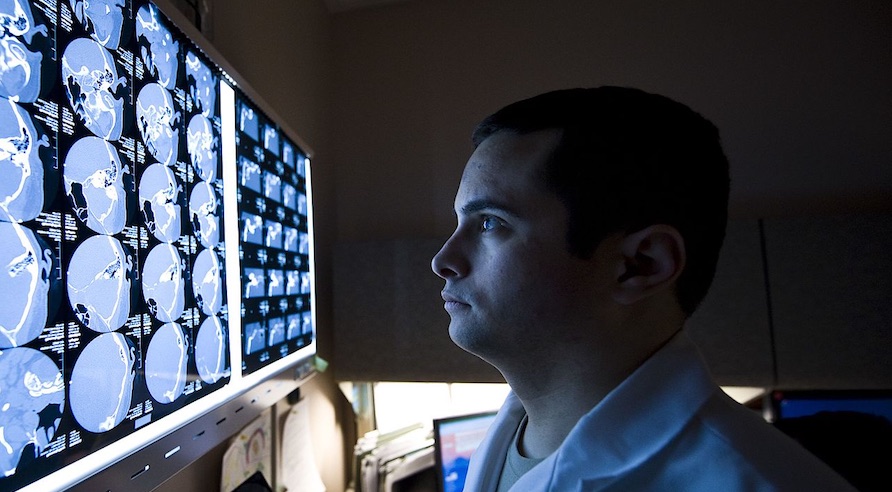It’s estimated that Americans suffer from 1.6 million to 3.8 million sports- and recreation-related concussions every year, according to the Brain Injury Research Institute. Many of these concussions are minor and cause no serious damage to the brain, but others can cause long-term problems and even death.
Doctors typically diagnose mild concussions by asking questions to judge cognitive reactions, but a new discovery by researchers at Penn State College of Medicine might soon change that. According to their new study, published Monday in JAMA Pediatrics, the researchers found five small molecules in saliva that can help identify concussion symptoms in kids, teens and younger adults. The molecules — known as MicroRNAs — influence the activity of protein in the body and are easily measured in bodily fluids, including saliva.
These MicroRNAs could predict the symptoms of concussions in children with 85 percent accuracy, according to Dr. Steve Hicks, senior study author and assistant professor of pediatrics at Penn State College of Medicine. Traditional surveys by doctors are only about 65 percent accurate, he added.
For the study, Hicks and his team looked at the saliva of 52 patients ranging from seven to 21 who had come to the Penn State Hershey State Medical Center for evaluation after sport injuries or car accidents.
Of the 52, 22 had symptoms of a mild traumatic brain injuries, while another 30 showed more long-term damage. The team was able to accurately predict the more serious injuries by measuring the MicroRNAs in five of the children — even more accurately than the typical questionnaire doctors use to diagnose mild concussions.
“Fortunately, the technology required to measure saliva RNA is already employed in medicine; we use it to check patients for upper respiratory viruses in our hospitals and clinics every day,” Hicks told CNN. “Modifying this approach for patients with concussions could potentially provide a rapid, objective tool for managing brain injury.”
The next step is to use the same approach on members of the military.
“Because the markers we identified in this study are not correlated with patient age, we are hopeful they may be applied in adult populations, as well,” Hicks added.
“Fortunately, the technology required to measure saliva RNA is already employed in medicine; we use it to check patients for upper respiratory viruses in our hospitals and clinics every day,” Dr. Steve Hicks, the study’s senior author, told CNN. “Modifying this approach for patients with concussions could potentially provide a rapid, objective tool for managing brain injury.”



















